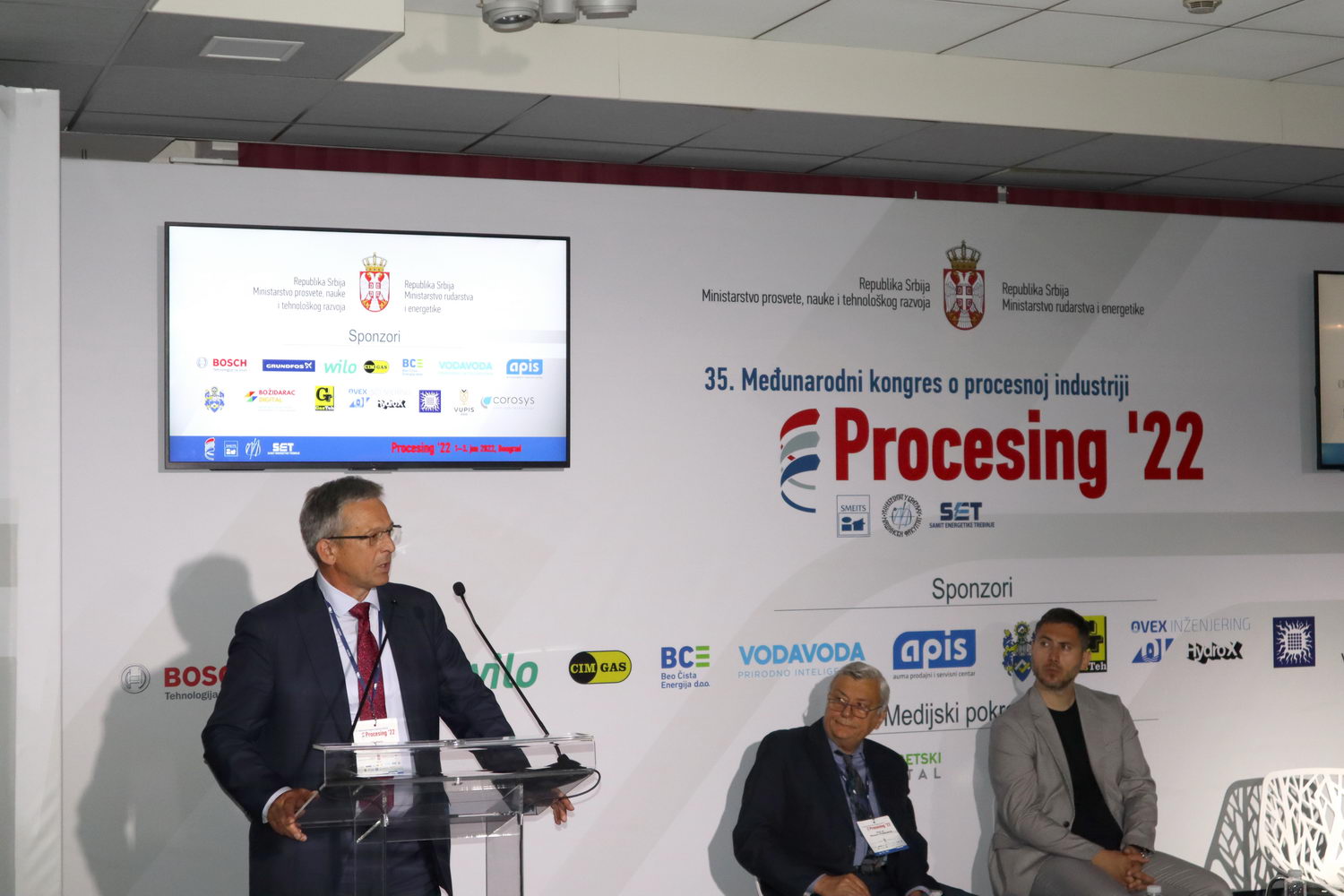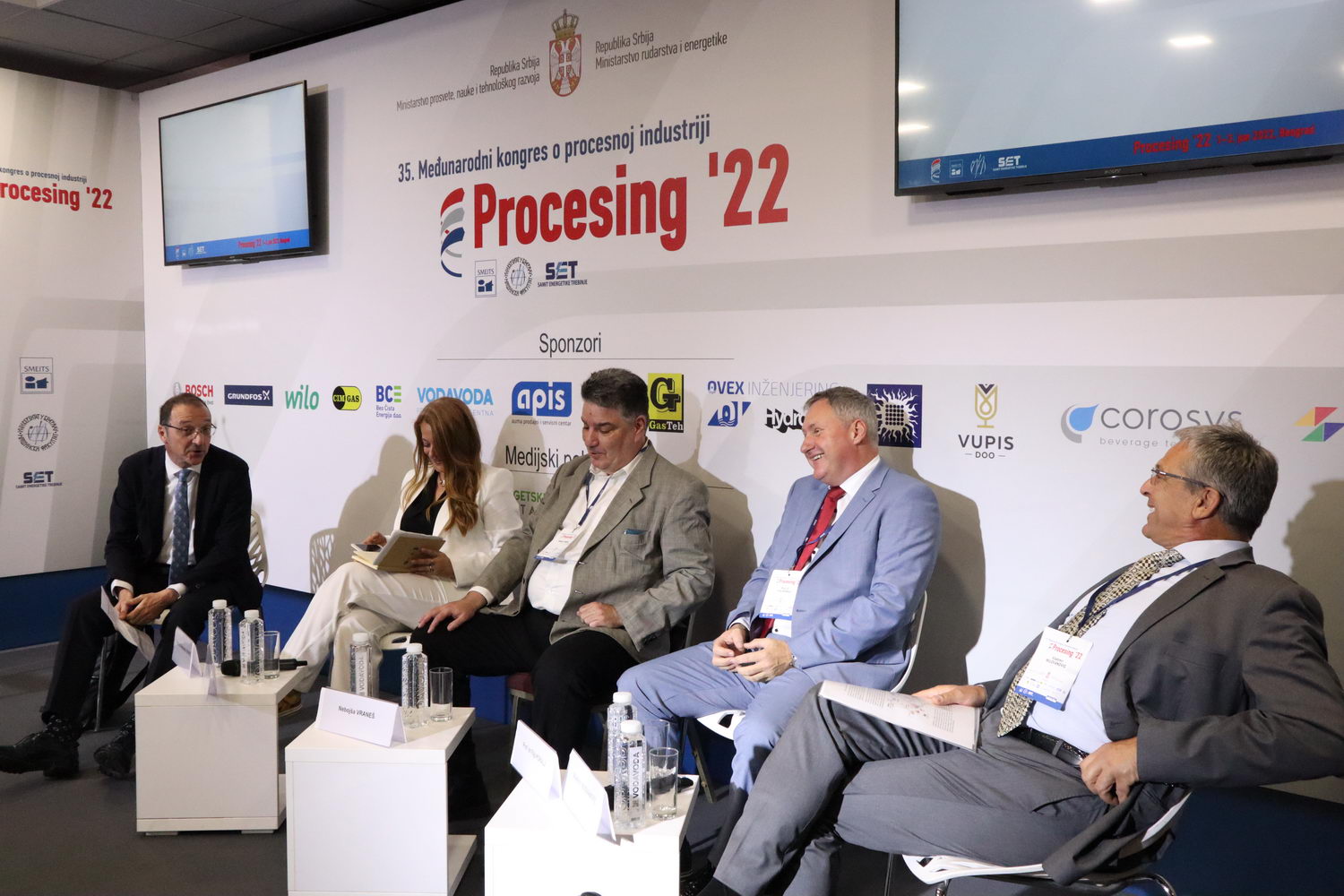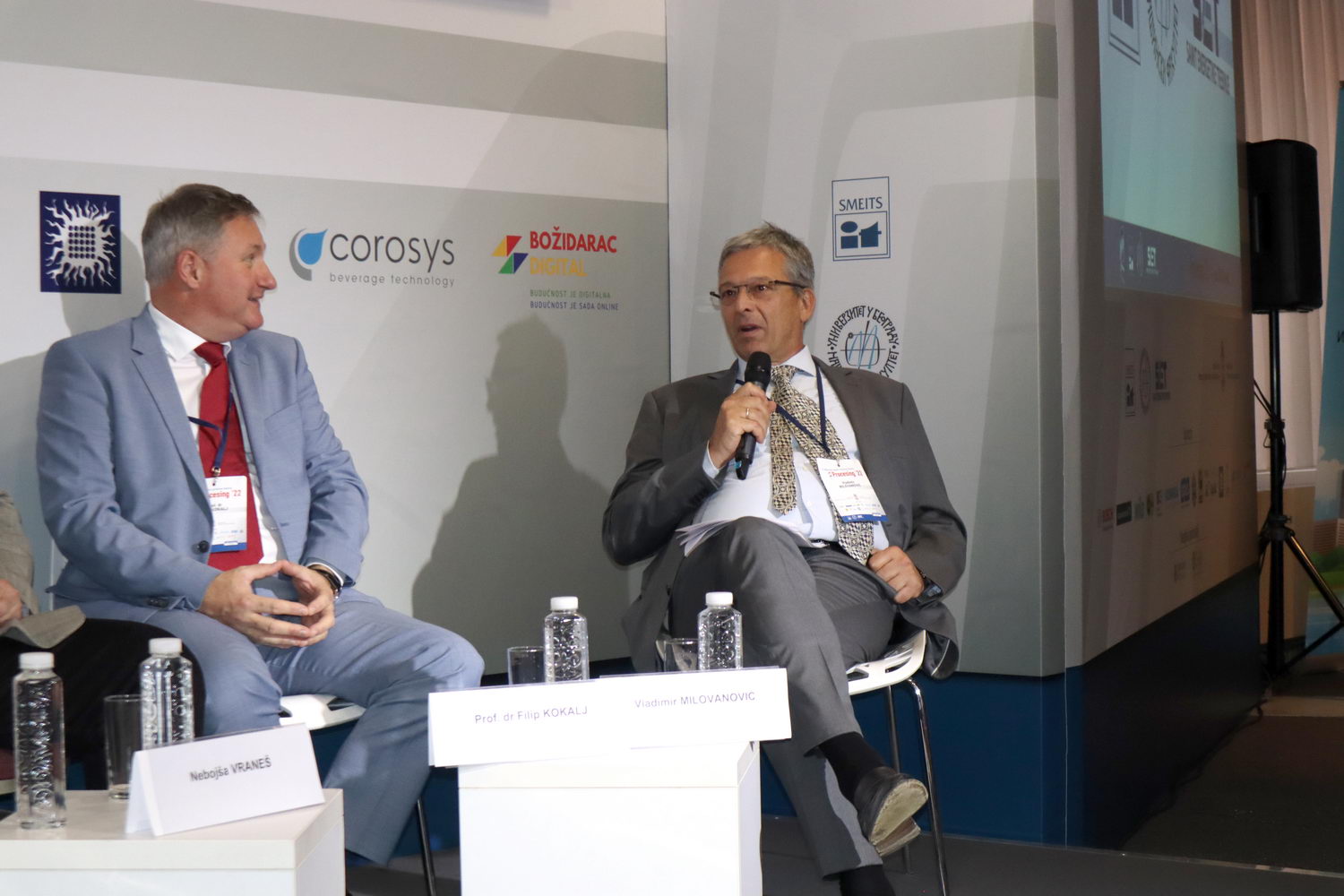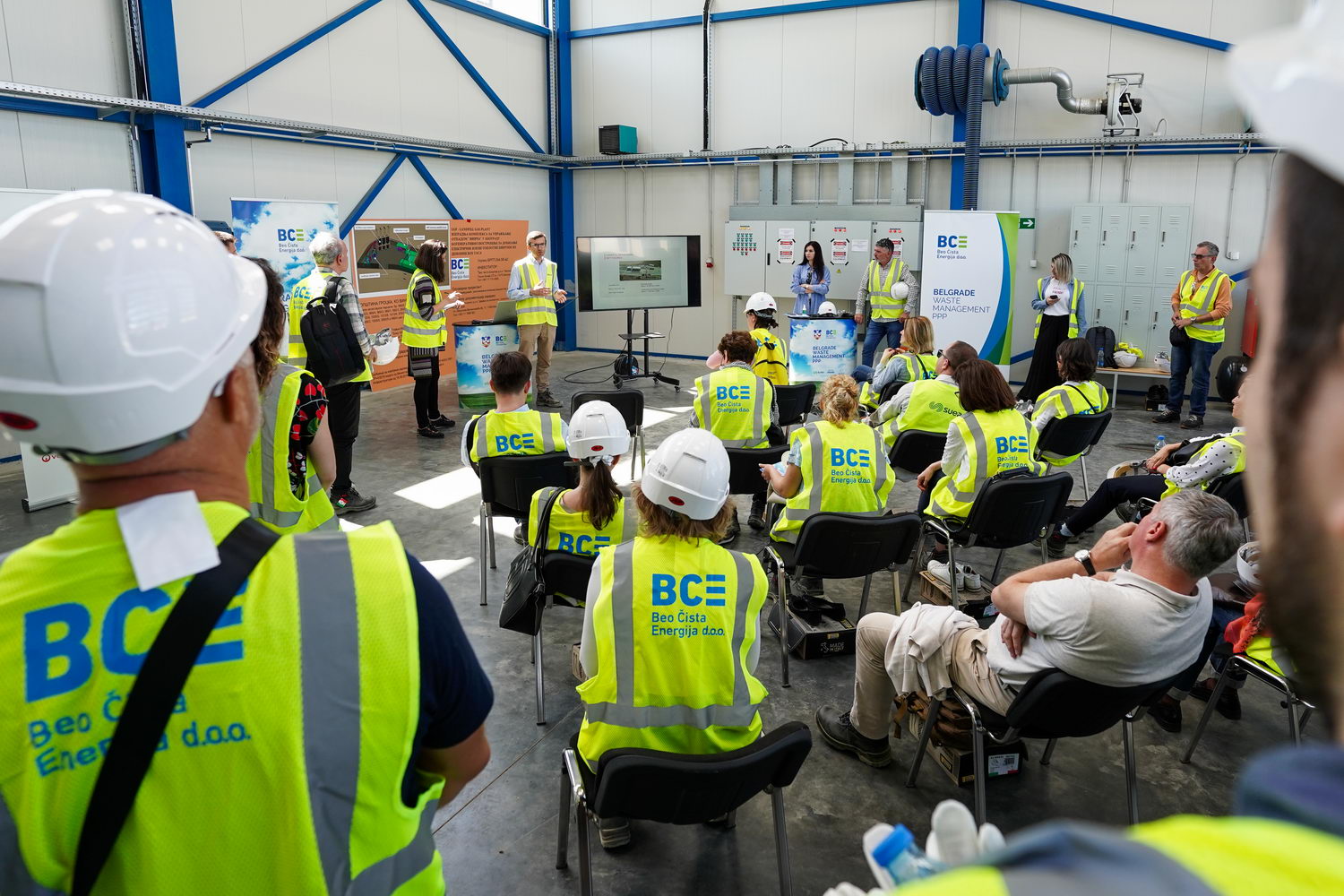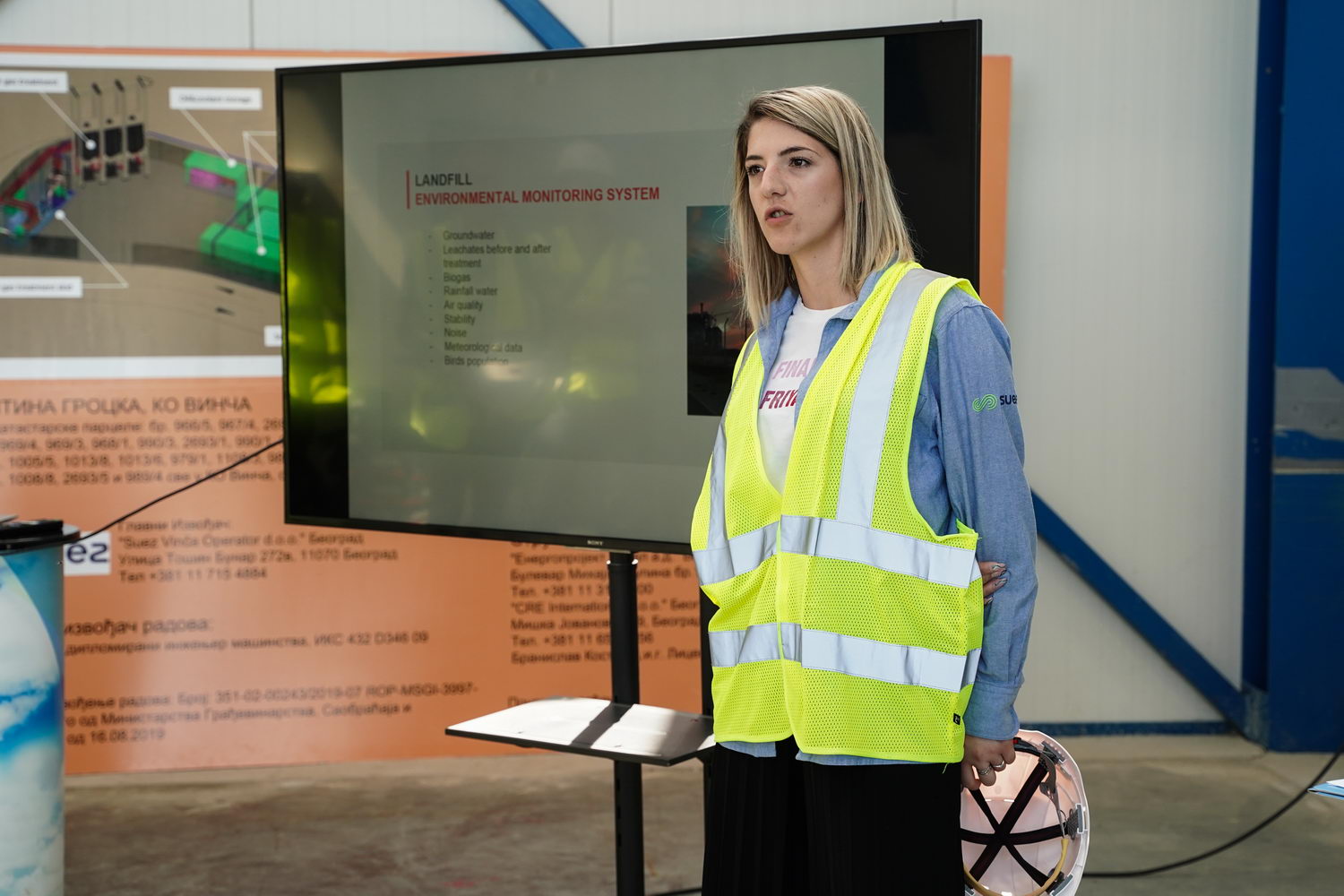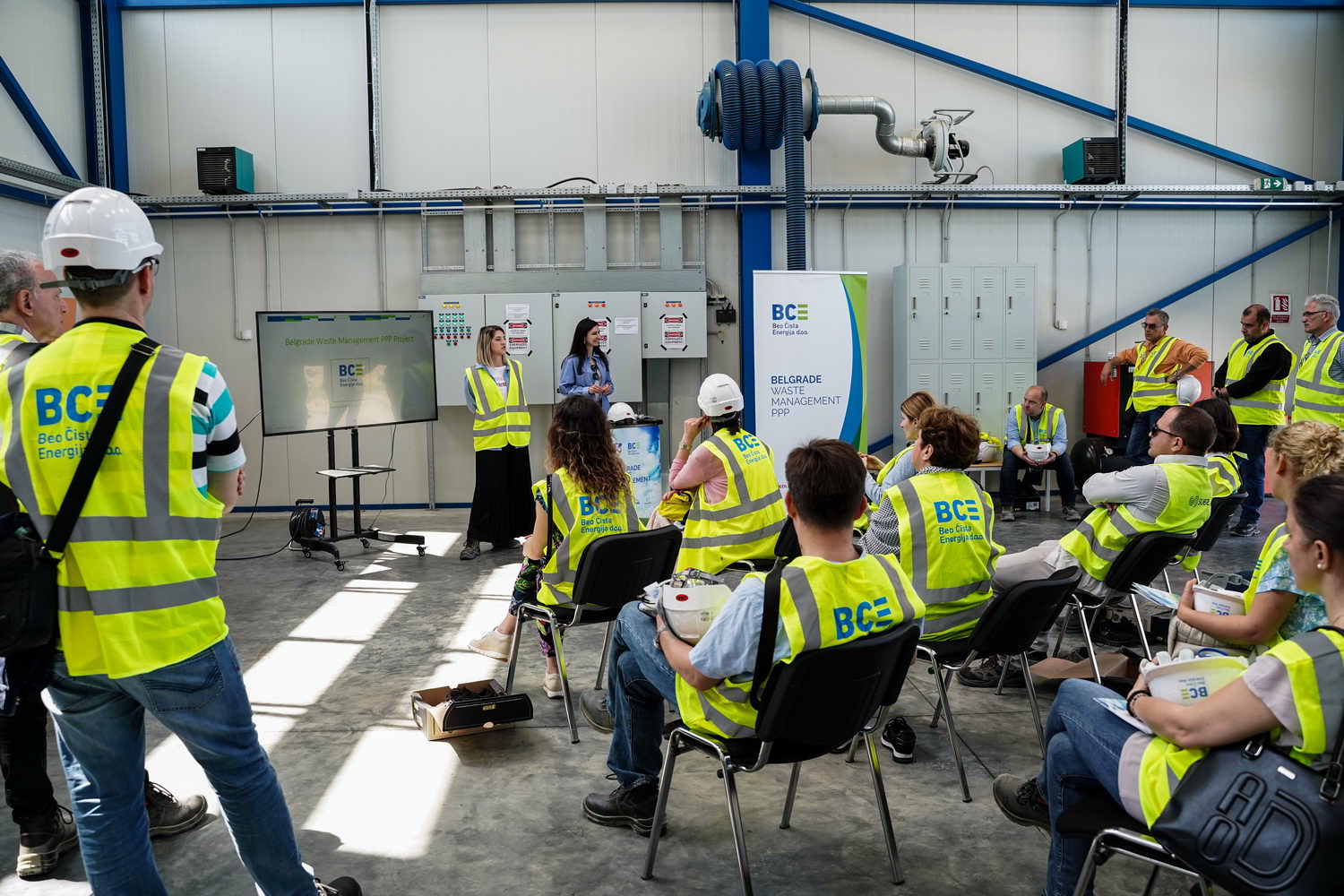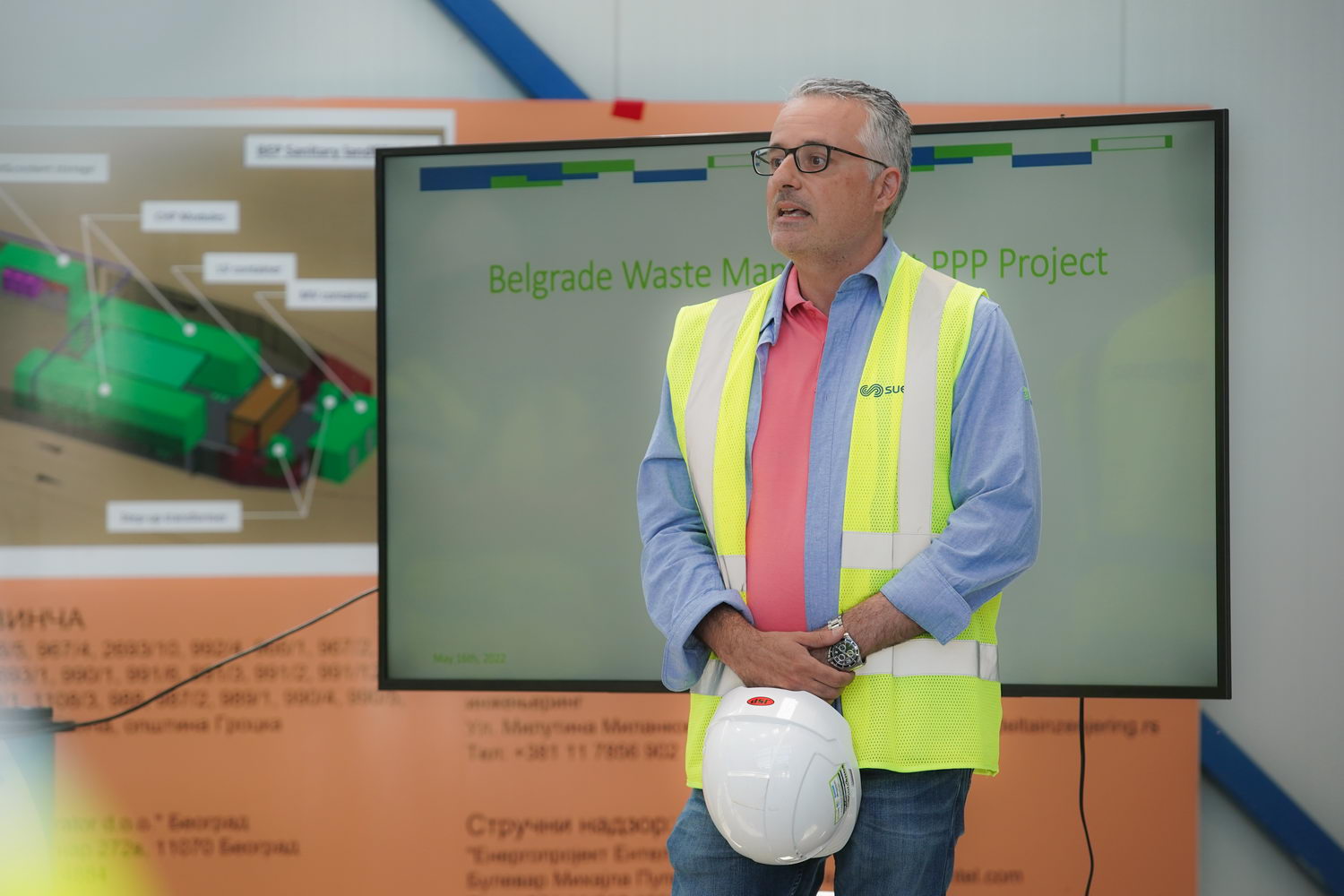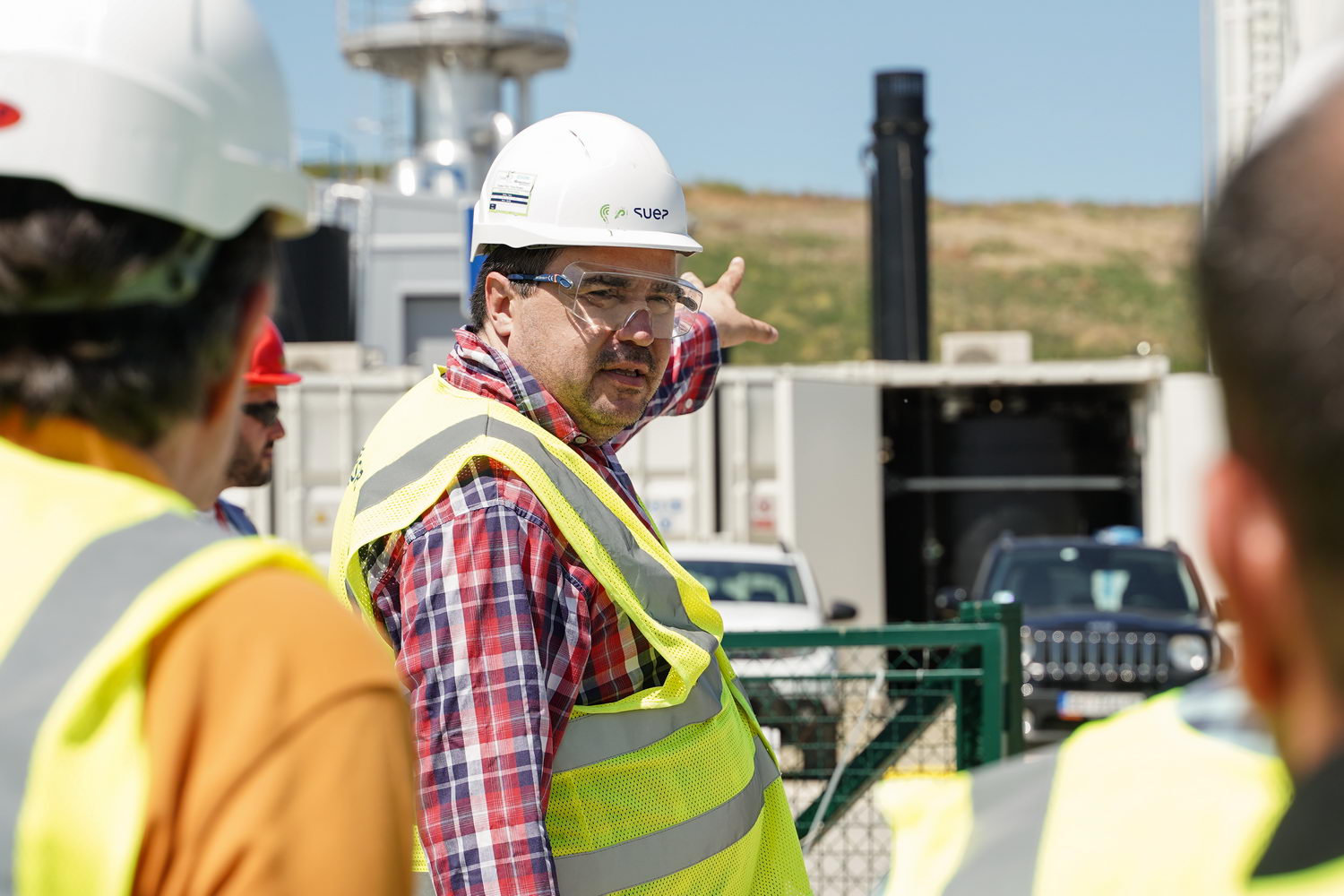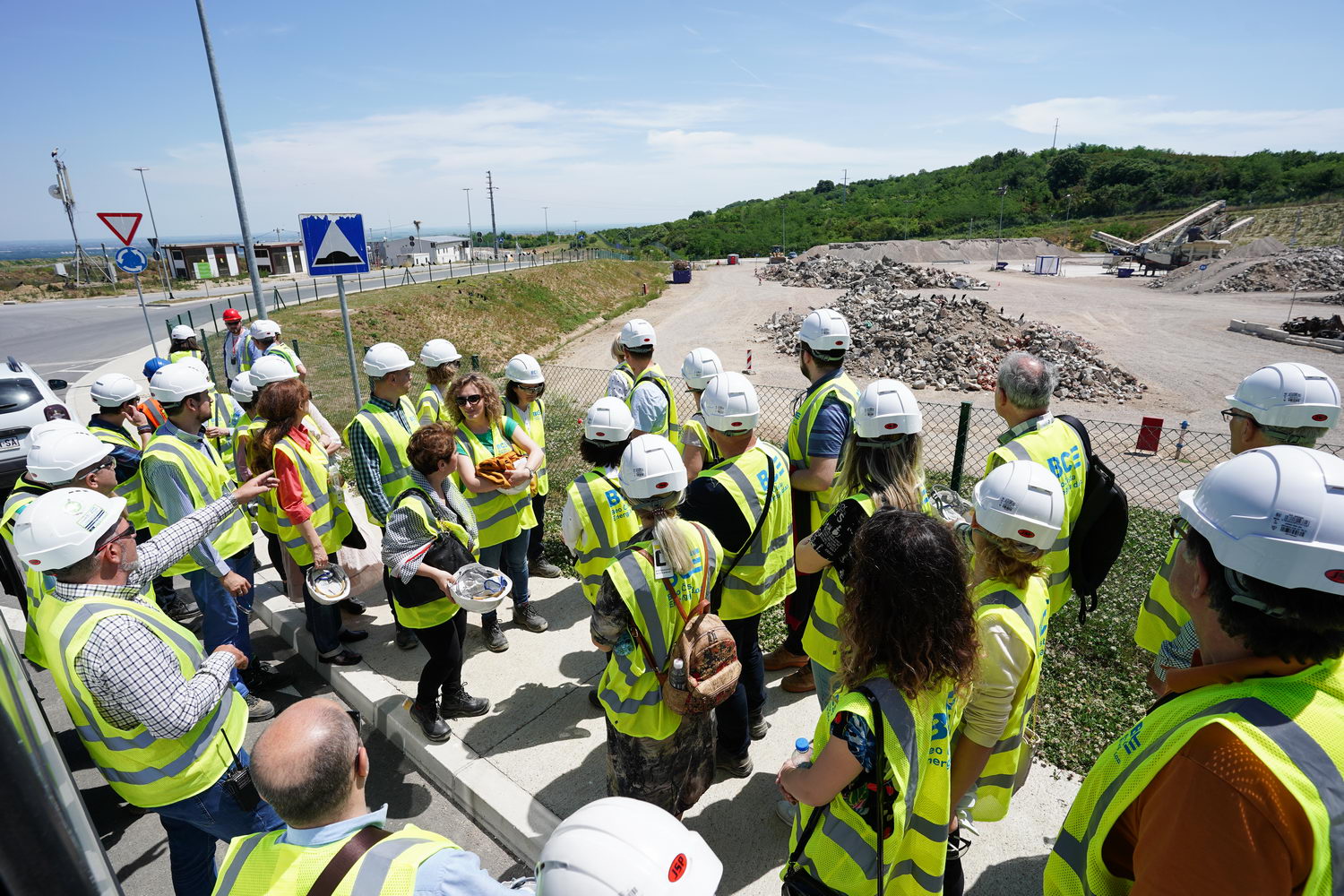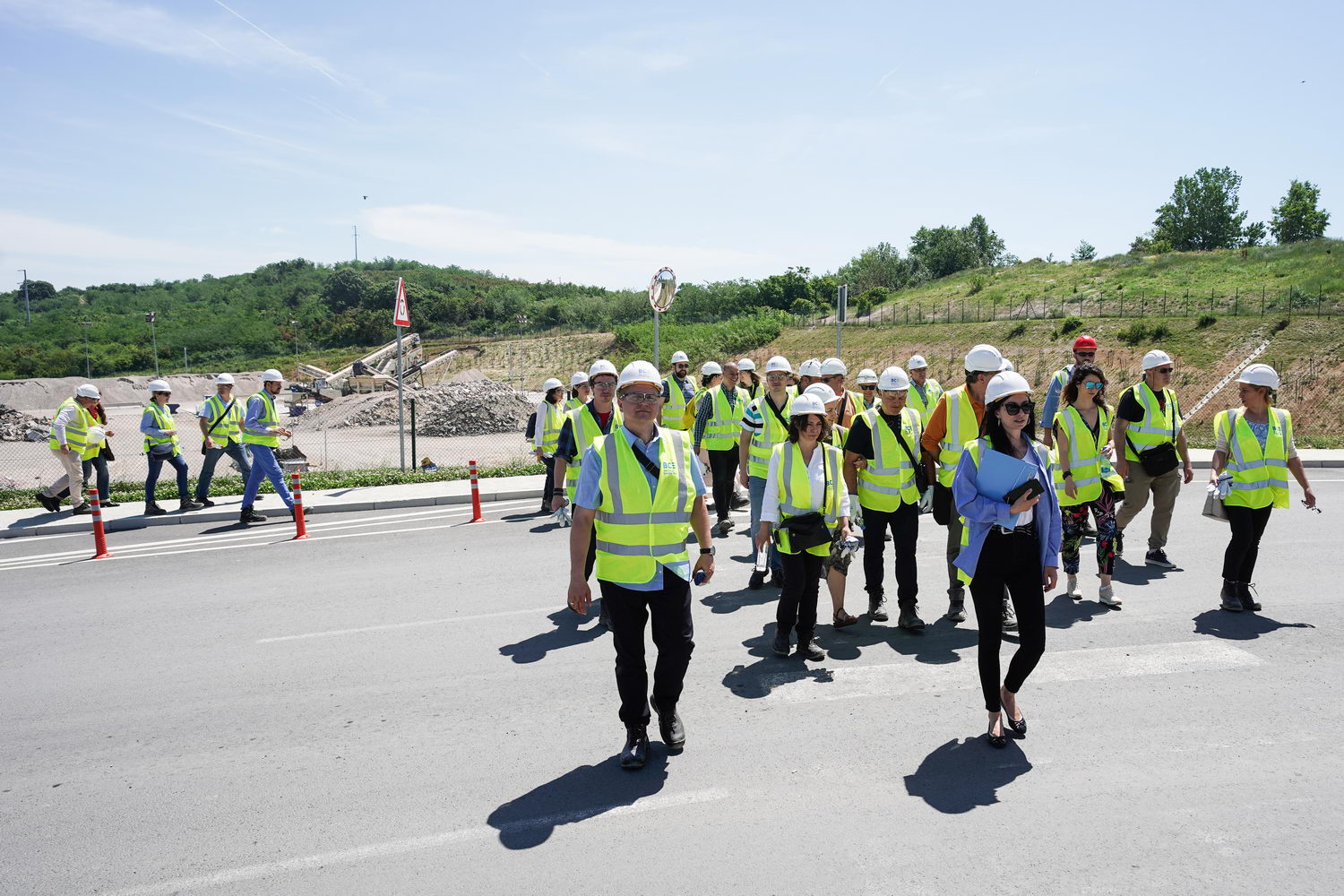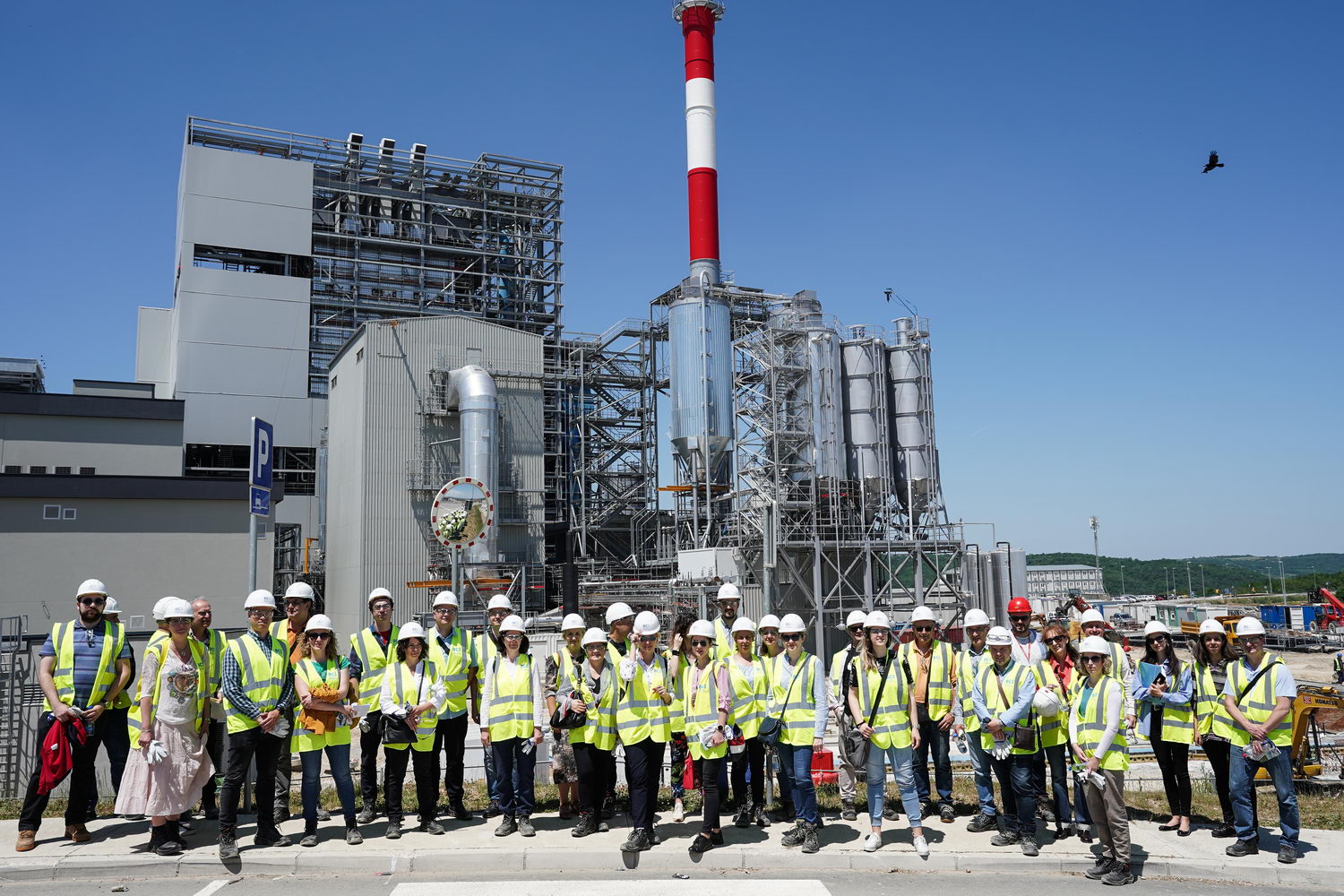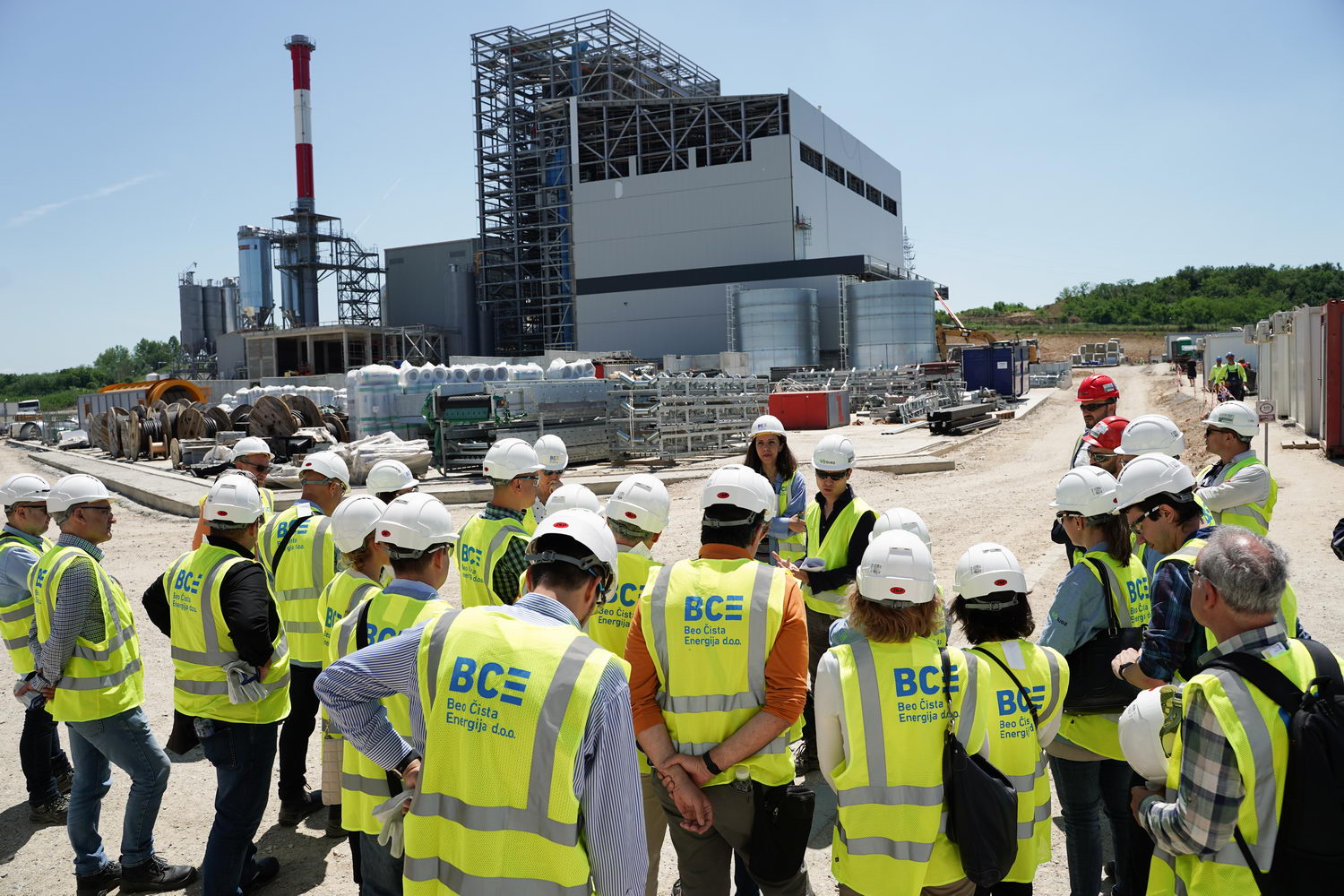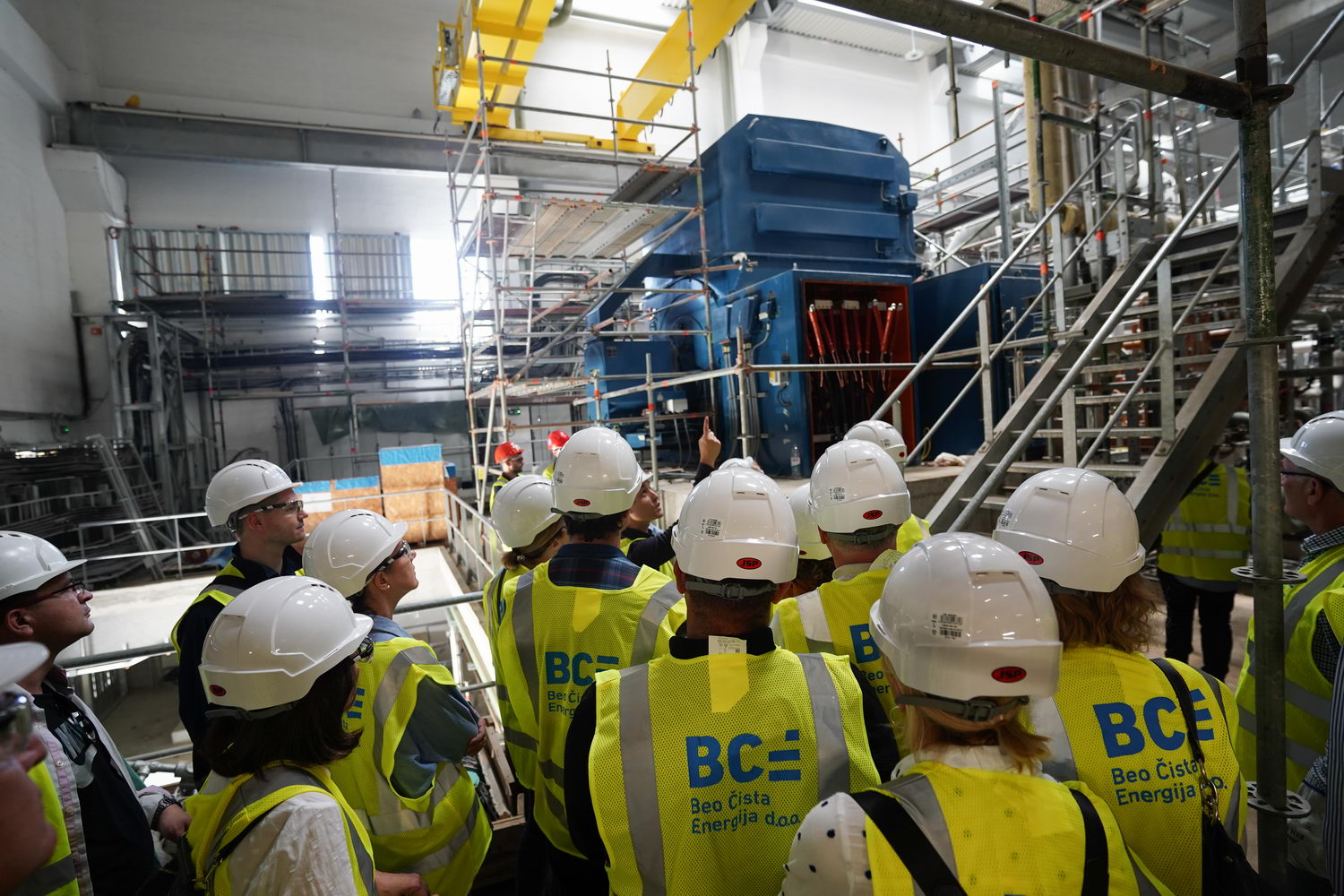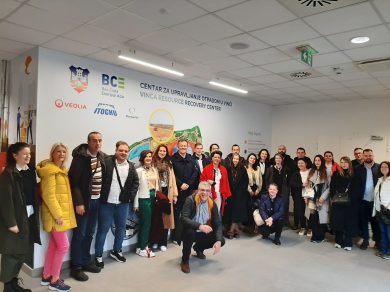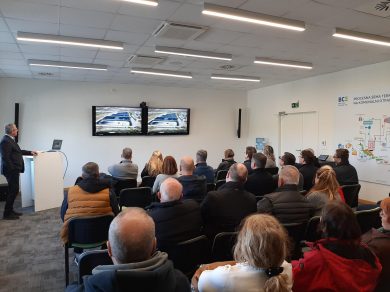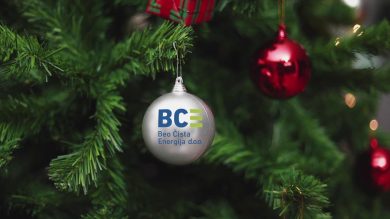During the 35th International Congress on Process Industry held from 1 to 3 June 2022 in Belgrade, Beo Čista Energija LTD participated in a round table on “Modern Waste Thermal Treatment Procedures, while for congress participants has been organized the tour to the Vinča Waste Management Center and presentation of all waste treatment facilities which will enable waste management of municipal waste in Belgrade in a modern way that protects the environment.
Among other participants of the round table was Vladimir Milovanović, Managing Director of Beo Čista Energija, who presented the project and the benefits of the energy from municipal waste in the power plant whose construction is in the final phase.
Talking about preconditions for efficient and quality operation of EfW plant (energy-from waste plant), Milovanović said that the operation of this power plant depends on many factors, starting from the characterization of waste used for combustion, through combustion process parameters, to efficient flue gas cleaning and treatment and disposal of combustion residues.
“One of the most important preconditions is that recyclable components have been separated from municipal waste, such as metal waste, glass, hazardous household waste (batteries, paints, pesticides, etc.) and construction and demolition waste. Municipal waste is directly unloaded in a waste bunker in the Energy-from-Waste plant, from where it is guided onto MartinTM grate” – said Milovanović.
He added that 340,000 tons of solid municipal waste per year, collected from the territory of 15 Belgrade municipalities, is planned to be thermally treated in the Energy-from-Waste plant.
“At maximum treatment capacity utilization of 43.6 t/h of waste with an average calorific value of 8.5 MJ/kg, 30.24 MWel and 56.50 MWth will be generated. Generated electricity (139 GWhel) will be delivered to EMS via 110kV overhead transmission line and substation Belgrade 20 to consumers, while heat (253 GWhth) will be taken by PUC Belgrade Heating Plant via district heating piping connecting the EfW Vinča and Konjarnik heating plant and further delivered to Belgrade households,” explained Milovanović.
When asked about the main technological solutions applied for flue gas cleaning, Milovanović said that the EfW plant is equipped with SECOLABTM dry process for flue gases treatment.
“The flue gas treatment system enables the reduction of pollutants in flue gases released into the atmosphere to the level laid down by the requirements of the revised EU Industrial Emissions Directive, which came into force 2019 Dry residues from flue gas treatment in APCR (Air Pollution Control Residue) facility are captured in bag filters, and then stabilized and hardened by mixing them with cement and binder additives. The best available technological solutions have been applied at the Vinca Energy-from-Waste plant, while many process parameters taking place in the plant will be continuously monitored and optimized, and harmful gas emissions will be controlled using a sensor system installed on the plant stack. This system was selected in order to meet standards and reduce the permissible limit values for harmful gas emissions set by the EU Directive” – he added.
Milovanovic mentioned that during the past 45 years municipal waste was inadequately disposed of on the landfill, according to today’s standards, and negative consequences are multiple.
“The old landfill contributed to an increase in air pollution in Belgrade due to the free release of landfill gases (mainly methane), a product of organic waste decomposition, while polluted leachate flowed freely and uncontrollably into the Danube River. If we add to this the impacts of frequent minor and major fires in the landfill body and on landfill surface when emissions of very harmful gases occurred as a result of incomplete waste combustion in very short periods and inadequate disposal of municipal waste, it is clearly concluded that it is a major source of pollution” – said Milovanovic.
Milovanović pointed out that the implementation of the Public-Private Partnership project signed between the City of Belgrade and Beo Čista Energija d.o.o., a special purpose vehicle founded by the Japanese corporation Itochu, French company Veolia and Marguerite pan-European investment Fund, will significantly reduce the environmental impacts of the Vinča landfill.
“Municipal waste is already disposed of in the new sanitary landfill, which is isolated from the environment with geo-synthetic materials, disposed waste is regularly compacted and covered, while leachate is transported to the Leachate treatment facility through a pipeline so now treated water flows into Ošljanski creek and further into the Danube River”. Once the Energy-from-Waste plant is completed and 2/3 of Belgrade’s municipal waste is used for energy generation, and 1/3 of waste is disposed of in the sanitary landfill, and once the old landfill is remediated and covered with geo-synthetic material to prevent water from entering the landfill body and landfill gas from leaving it, the environment improvements in Belgrade will become noticeable and measurable. These multiple positive effects of the PPP project contribute to achieving 7 sustainable development goals set by the United Nations and achieve a total reduction of CO2 emission of 250,000t CO2eq per year“- concluded Milovanović.
He also mentioned that along with the activities of the City of Belgrade on improving waste management infrastructure, more efficient organization of primary waste separation and perspective increase of recovery rates for certain components of municipal waste, the Vinča project will significantly contribute to making the Serbian capital one of the capitals of European countries striving to attain circular economy and sustainable development goals according to the highest European standards.


